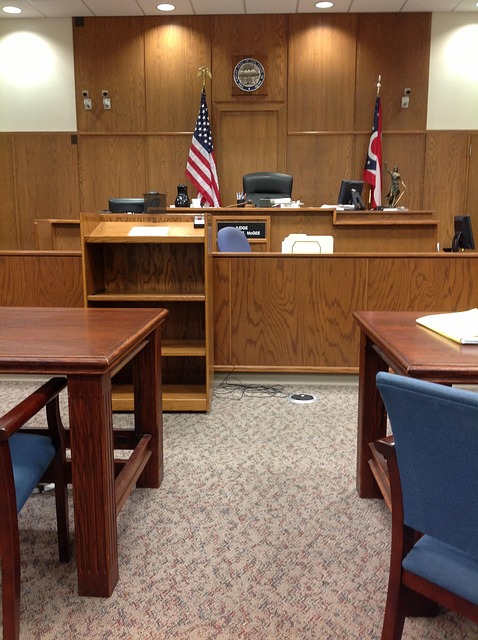Antitrust violation cases ensure fair competition through administrative actions by regulatory bodies like the FTC, which investigate and enforce laws with secret inquiries, hearing officers, and non-jury trials, versus civil proceedings initiated by private parties seeking damages or injunctive relief, often involving jury trials. Understanding these Differences Between Administrative and Civil Proceedings is crucial for navigating antitrust law, especially in cases of white-collar crimes like price-fixing and market division, which harm consumers and smaller businesses. Effective legal strategies are essential to protect clients across diverse industries.
Antitrust violation cases are a critical aspect of maintaining fair market competition. This article delves into the intricacies of these legal battles, focusing on understanding antitrust laws, recognizing anti-competitive behaviors, and their profound impact on consumers. We explore two primary proceedings: administrative actions by regulatory bodies like the FTC and DOJ, versus civil lawsuits initiated by affected parties. By comparing processes, legal standards, and potential outcomes, including fines, divestitures, and damages awards, this guide illuminates the differences between these essential approaches to enforce antitrust violations.
- Understanding Antitrust Violation Cases
- – Definition and scope of antitrust laws
- – Common types of anti-competitive behaviors
Understanding Antitrust Violation Cases

Antitrust violation cases are a significant aspect of maintaining fair competition in the marketplace. These cases involve examining business practices to ensure they adhere to antitrust laws, which promote healthy economic competition and protect consumers from monopolistic behavior. Understanding these cases is crucial, especially when considering the differences between administrative and civil proceedings.
Administrative proceedings are typically initiated by regulatory bodies, such as the Federal Trade Commission (FTC) in the US, to investigate and enforce antitrust laws. These processes often involve secret investigations, hearing officers, and non-jury adjudications. In contrast, civil proceedings are brought by private parties, like competitors or consumers, seeking damages or injunctive relief for alleged antitrust violations. Jury trials are common in these cases, allowing for a comprehensive examination of facts and evidence, which can have substantial impacts across the country, particularly when addressing white-collar and economic crimes.
– Definition and scope of antitrust laws

Antitrust laws are a crucial set of regulations designed to maintain fair competition in the marketplace, ensuring no single entity dominates an industry to the detriment of consumers and smaller businesses. These laws cover a wide range of behaviors, including price-fixing, market division, and monopolistic practices. The scope includes not just large corporations but also any business involved in white-collar and economic crimes, as these activities can significantly impact the competitive landscape.
Understanding the legal process is essential when discussing antitrust violation cases. There are two primary avenues for enforcement: administrative and civil proceedings. Administrative actions are typically initiated by regulatory bodies like the Federal Trade Commission (FTC) or the Department of Justice (DOJ), leading to potential penalties and corrective measures. In contrast, civil lawsuits involve private entities seeking redress for alleged antitrust violations, which can result in substantial monetary damages. The Differences Between Administrative and Civil Proceedings play a vital role in determining how these cases are handled, with each approach offering distinct paths towards justice and, potentially, complete dismissal of all charges for the accused, depending on the circumstances.
– Common types of anti-competitive behaviors

Antitrust violation cases encompass a range of anti-competitive behaviors designed to restrict market competition. Common types include price-fixing agreements between competitors, where they collude to manipulate prices; market division, where companies allocate customers or territories to each other; and abuse of dominant market position, where a company uses its power to disadvantage rivals. These practices hinder free market principles by limiting consumer choice and driving up costs.
Understanding the nuances between administrative and civil proceedings is crucial in such cases. Administrative actions are initiated by regulatory bodies like the Federal Trade Commission (FTC) or Department of Justice (DOJ), focusing on preventing future violations and imposing structural remedies. In contrast, civil lawsuits involve both corporate and individual clients, often seeking damages for past misconduct. A strong white-collar defense strategy is essential, leveraging an unprecedented track record in navigating complex antitrust matters to protect the interests of clients across various industries.
In addressing antitrust violation cases, understanding both administrative and civil proceedings is crucial. While administrative actions focus on swift enforcement and preventative measures, civil lawsuits emphasize compensatory justice for harmed parties. Recognizing these differences enables a comprehensive approach to combating anti-competitive behaviors, ensuring fair market practices for consumers and fostering a robust economic environment.






